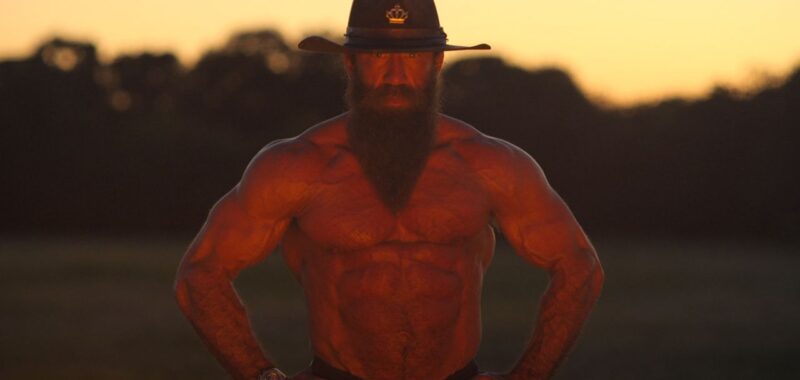How did you get to the real Brian Johnson?
It was a lot to do with time. The master interview we did was four straight days and probably 12 hours each day, and I guess you chip away after a while. Heâs very combative; he wants to win. I knew that after a couple of weeks of being with him. So I let him say what he needed to say, and then started pushing on the things that I wanted.
When he confessed to committing crimes earlier in lifeâ making his own drugs and printing moneyâdid you believe him?
Yes. There was a moment in the interview where after a few days of talking and grinding him down, he decided that he was going to reveal much more of his character to me. I was surprised it was [a] criminal past, but I absolutely believe him. The specificity around some of the things he was doing made me believe him. And there were stories about his childhood that didnât make it into the film: pretending to be Boy Scouts and collecting money and then spending it on candy. It felt like there was an uncontrolled independence he had because of [having] no father figure, and because his mom was dealing with another child and her job.
Is he as toxic as other âmanosphereâ figures like Andrew Tate?
There [are] lots and lots of potentially toxic ideas, but I donât think thatâs the core of it. We canât forget that, for all the steroids and the other things that happened with Brian, he helped a lot of people understand ways in which they could become healthier. He was definitely on a mission to help people. That changed, and you see that change. But do I think the intention was good? At the beginning, it probably was. I think that is important, and it should be an underlying thing in this story.
Did you get any sense of his politics?
This is the saddest thing: thereâs no politics. I was on the phone to him the moment Trump got shot in the ear, and I was like, âWhoa, holy shit.â And he said, âWhy would I care about that?â This guy, he doesnât operate outside of his universe. Whatâs happening in front of him and on his screen is what matters. There is nothing else. And that was a fascinating thing to realize.
When he injects himself with something in the middle of one of your interviews, were those steroids?
That was human growth hormone or testosterone, one of the two.
Was that a performance staged for you?
100 per cent. It wasnât the only time he took steroids on camera, but it felt like to do it in the master interview was making a statement. The mental gymnastics he was able to do to feel like he was telling the truth about other things, [despite] being deceptive around the drugs, is very interesting. He is still doing those drugs to this day.

